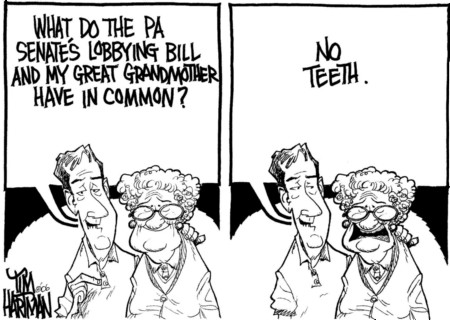![[nepotism.jpg]](https://blogger.googleusercontent.com/img/b/R29vZ2xl/AVvXsEiBvjv13gTR69H-nRgqCbgBWBwAC5ed9jFKzsj_qpWOw_SSpLs0bILDCrkLXmkyhVgBTgww1ARiRSJl2JUOwX449fOoPelxrJMCOPN1oE_DjG8GCltE7ZdjyTz6G3CaxeGLBCjOf8lFQm-S/s1600/nepotism.jpg)
Nepotism is the showing of favoritism toward relatives and friends, based upon that relationship, rather than on an objective evaluation of ability, meritocracy or suitability. For instance, offering employment to a relative, despite the fact that there are others who are better qualified and willing to perform the job. The word nepotism is from the Latin word 'nepos', meaning "nephew" or "grandchild".
Papal nepotism
Nepotism gained its name after the church practice in the Middle Ages, when some Catholic popes and bishops — who had taken vows of chastity, and therefore usually had no children of their own — gave their nephews positions of preference such as were often accorded by fathers to sons[1]. Several popes are known to have elevated nephews and other relatives to the cardinalate. Often, such appointments were used as a means of continuing a papal "dynasty". For instance, Pope Callixtus III, head of the Borgia family, made two of his nephews Cardinals; one of them, Rodrigo, later used his position as a Cardinal as a stepping stone to the papacy, becoming Pope Alexander VI[2]. Coincidentally, Alexander elevated Alessandro Farnese, his mistress's brother, to the cardinalate; Farnese would later go on to become Pope Paul III[3]. Paul also engaged in nepotism, appointing, for instance, two nephews (aged fourteen and sixteen) Cardinals. The practice was finally ended when Pope Innocent XII issued a bull Romanum decet Pontificem in 1692[4]. The papal bull prohibited popes in all times from bestowing estates, offices, or revenues on any relative, with the exception that one qualified relative (at most) could be made a Cardinal.

Examples
Nepotism is a common accusation in politics when the relative of a powerful figure ascends to similar power seemingly without appropriate qualifications. For example, the popular British English expression "Bob's your uncle" is often thought to have originated when Robert Arthur Talbot Gascoyne-Cecil, 3rd Marquess of Salisbury, promoted his nephew, Arthur Balfour, to the esteemed post of Chief Secretary for Ireland in what was widely seen as an act of nepotism.
More recently, when U.S. Senator Frank Murkowski was elected Governor of Alaska, he appointed his daughter, State Representative Lisa Murkowski, to fill the remaining two years of his seat and was accused by some of nepotism. John F. Kennedy was accused of nepotism for his appointment of his brother Robert Kennedy as Attorney General.
Many countries in the world have examples of this tilt towards dynastic rule, such as:
- Australia: Deputy Prime Minister Julia Gillard appointed her boyfriend Tim Mathieson as one of six Men's Health Ambassadors despite having "no health qualifications".
- Azerbaijan: President Heydar Aliyev, who was suffering from failing health, appointed his son Ilham Aliyev Prime Minister during the last months of his presidency in 2003. Then just prior to the election the elder Aliyev dropped out and put his son up as presidential candidate instead. Aliyev was elected to the presidency and his father died just two months later, having successfully sealed the transfer of power to his son.
- Trinidad and Tobago: Prime Minister Patrick Manning appointed his unelected wife Hazel Manning to the Cabinet for two consecutive terms, first as Minister of Education and currently as Minister of Local Government.
- India: The Nehru-Gandhi Family, which has exercised enormous influence over Indian politics for the past century, has shown a strong tendency for nepotism, as manifested most starkly through "dynastic politics". The most obvious recent example is the rise of Rahul Gandhi, widely described as a "certain future Prime Minister", despite his lifelong lack of success in academic and professional life, including his failure to graduate from Harvard College, his admission to Harvard also having been seen as a "non-merit exception". In the state of Tamilnadu, legendary politician Karunanidhi promotes his entire family members in various leadership positions in his party DMK, his first son M. K. Azhagiri controls the party in southern areas, wheres his second son M.K. Stalin is nominated for next party president and Chief ministerial candidate, his daughter Kanimozhi is Member of Parliment, his nephew Murasoli Maran and grand nephew Dayanidhi Maran were central ministers.
- Cuba: Former presidente Fidel Castro appointed his brother Raul as minister of defense during the 60s and during the 80s as his successor to the presidency which materialized in 2007. Fidel´s son "Fidelito" was in charge of the nuclear program in Cuba, which was eventually a failure and involved a loss of 800 million dollars. Fidel´s close family members have been living in big farms or "fincas" disguised as "agricultural research centers" or "army facilities", but in practice they are mansions for Fidel's relatives.[citation needed]
- Malaysia: Tun Abdul Razak, the second Prime Minister, and his son, Najib Tun Razak, the current Deputy Prime Minister; Khairy Jamaluddin who won his position as Deputy Chief of UMNO Youth Wing with the influence of his father-in-law, Abdullah Ahmad Badawi, the current Prime Minister.
- Maldives: President Maumoon Abdul Gayyoom once had 13 of his brothers, brothers-in-law, and classmates as members of his cabinet.
- Singapore: Lee Hsien Loong, the eldest son of Singapore's first Prime Minister Lee Kuan Yew, is the current Prime Minister of Singapore. Lee Hsien Loong was also the youngest Brigadier General in the Singapore Armed Forces. He joined the forces in 1971 and by 1983, he was the Chief of Staff of the Armed Forces. His wife (Lee Kuan Yew's daughter-in law), Ho Ching, is the Chief Executive Officer of Temasek Holdings, a government-controlled fund that owns assets over US$100 billion, including a large proportion of the largest Singaporean companies. These include SingTel, the largest South-East Asian telecom company, which was headed by Lee Hsien Yang (Lee Kuan Yew's younger son) from 1995 to 2006. Lee Hsien Yang became CEO of Singtel at age 38, after a successful career in the Singapore Armed Forces which saw him reach the rank of Brigadier General as well.
- Syria: Bashar al-Assad was appointed as President after his father Hafez's death, despite being too young for the post under the country's constitution as it then stood.
- North Korea: Kim Jong-il became Chairman of the National Defense Commission, Supreme Commander of the Korean People's Army, and General Secretary of the Workers' Party of Korea (the ruling party since 1948), succeeding his father Kim Il-sung, the founder of the Democratic People's Republic of Korea, who died in 1994.
- France: in 2008 Jean Sarkozy, son of the French President Nicolas Sarkozy, stood for election in a canton in the affluent Parisian suburb of Neuilly, the same district in which his father was Mayor. The original candidate was a loyal member of Sakozy's UMP Party named Arnaud Teulle. He stepped aside to allow Jean Sarkozy to run. This resulted in French commentators announcing "behold, the rise of the dauphin".[5]
- Sri Lanka after winning the Presidential election in 2005 Mahinda Rajapakse appointed younger brother Gotabhaya Rajapakse a former army officer as the secretary of defense, another younger brother Basil Rajapakse as a minister, elder brother Chamal Rajapakse also as a minister he further went on to appoint several close friends and associates as presidential advisers including Sajin Vass Gunawardene who was also appointed CEO of the state owned Mihin Air, though he did not have any qualifications. [6]
- Vietnam after "winning" the first ever democratic election in South Vietnam in 1955, Ngo Dinh Diem appointed his brother Ngo Dinh Nhu in charge of the private armies and secret police. Ngô Đình Cẩn, his younger brother, was put in charge of the former Imperial City of Huế.
- Venezuela President Hugo Chavez and Cilia Flores, president of the Venezuela National Assembly, are also known for their influences to get family members in the government. Flores managed to place relatives in as many as nine of sixty permanent positions at the National Assembly- three siblings, two nephews, a cousin, the mother of that cousin, her mother-in-law and an aunt. [7]
At some point, nepotism at high levels of government might serve to create what are in effect monarchies in nominal republics. In Syria, the case of the al-Assads mentioned above is one example. In Egypt, the likely similar succession of Gamal Mubarak to the Presidency upon Hosni Mubarak's death is equivalent. In Iraq, had there not been an overthrow of the government of Saddam Hussein with the US-led invasion, it would have been highly likely that his younger son, Qusay Hussein, would have succeeded to the presidency.
Outside of national politics, accusations of "nepotism" are made in instances of prima facie favouritism to relatives, such as:
- Peaches Geldof's role as magazine editor in an MTV reality show - produced by a company owned by her father Bob Geldof.[8] One-time Guardian contributor Max Gogarty has also been accused of taking advantage of family contacts to achieve success disproportionate to his ability; his father Paul Gogarty is a frequent travel writer for the newspaper.
- The Coppola Family of Hollywood includes many distinguished filmmakers. The careers of both Sofia Coppola and Nicolas Cage are attributed to aid by director Francis Ford Coppola who cast his daughter Sofia in The Godfather Part III.[9] [10] Nonetheless, both have subsequently established independent careers. Indeed Cage changed his last name in order to avoid such charges.[11]
- Cecelia Ahern had her first novel PS, I Love You published just days after finished college, despite her poor quality of writing and mediocre performance in college. Many Irish attribute this to her fathers role as the then Taoiseach of Ireland.

Social and Economic impacts
Nepotism and Cronyism deny ordinarily qualified people access to income and power. This can have long term and short term impacts on a society depending on the extent of the takeup and social acceptability of these practices.
Places where nepotism is known to have a negative impact on a society
- the Civil Service
- intergovermental and intragovermental relations (Ambassadors, Civil Service attached personnel)
Why is nepotism necessarily bad for a society? It allows incompetent people to get into power and stay in power for long periods of time with no oversight.

Source: Wikipedia


No comments:
Post a Comment